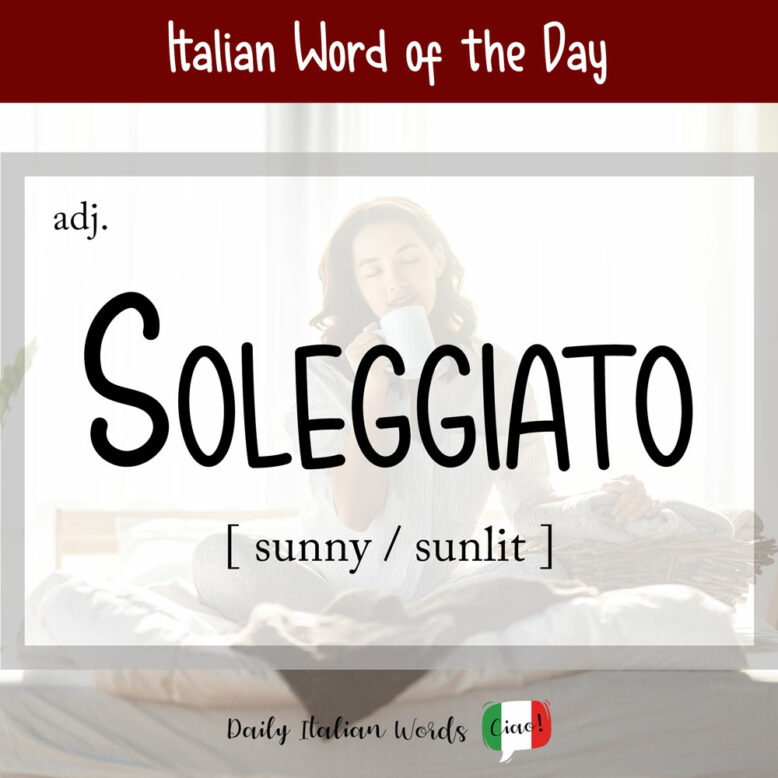After a number of vicious winter storms, the sun is shining for the first time in days, so what better word to talk about than soleggiato, which means sunny or sunlit. As you have probably inferred, it is a derivative of the word sole (sun).

Being an adjective, the ending changes to match the gender and/or number of the subject in question. For example:
- il tempo soleggiato = sunny weather
- i climi soleggiati = sunny climates
- una stanza soleggiata = a sunny room
- le giornate soleggiate = sunny days
As with the English word sunny, it can refer to a sunlit place or a sunny period of time.
Questo appartamento è molto soleggiato. Quanto costa affittarlo?
This apartment is very sunny. How much is the rent?

If you want to describe the state of the weather, however, it is better to use the adjective sereno or the expressions di sole.
Oggi il tempo è sereno, quindi vado a fare due passi.
Oggi è una giornata di sole, quindi vado a fare due passi.
It’s sunny today, so I’m going on a quick walk.
Heather Broster is a graduate with honours in linguistics from the University of Western Ontario. She is an aspiring polyglot, proficient in English and Italian, as well as Japanese, Welsh, and French to varying degrees of fluency. Originally from Toronto, Heather has resided in various countries, notably Italy for a period of six years. Her primary focus lies in the fields of language acquisition, education, and bilingual instruction.


